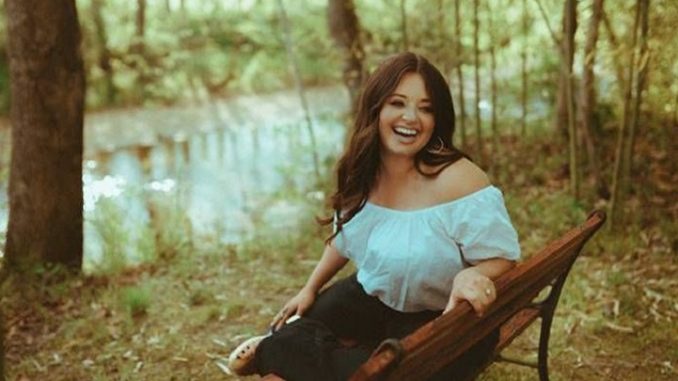
Emily Scott Robinson is at the very forefront of new female singer-songwriters with a small but perfectly formed catalogue of outstanding albums, a most engaging personality and a voice to fall in love with. She also writes some of the most compelling narrative stories of any songwriter around at the moment.
She was born in North Carolina but currently resides in Colorado, though in essence she is something of an old-fashioned troubadour. After gaining a degree in History and Spanish she moved to Telluride and took jobs as a social worker (working with victims of abuse) and as a translator. Having learned to play the guitar when she was thirteen she became inspired to write songs after seeing Nanci Griffith live – in many ways her songwriting takes a lot of its cues from Griffith’s style, though her voice is much more pristine.
She writes songs partly born out of her own experiences, which she often mixes in song with experiences of friends. One such was the title track to her debut album “Magnolia Queen”(2016), a relatively low-key acoustic affair due to the limitations of recording costs, most of which were funded by a Kickstarter programme. The song imagines what would happen to a girl after winning a local beauty pageant – she herself had finished second in one, but decided that this was not for her – “Lipstick and country clubs, blushing debutantes, Decorating some man’s arm, that’s all we were taught Send the kids to private school out of the neighborhood Oh yeah, it cost too much but the public school’s no good”.
The album met with critical success and shortly thereafter, having married a Romanian of gypsy stock, they set up home in a RV and travelled the country, booking shows themselves as they travelled around. The feedback and support that resulted from these countrywide shows enabled the production and release of her second album “Travelling Mercies” (2019), once again meeting with critical acclaim – a compendium of short stories borne out of life’s experiences and delivered most enchantingly and with pathos.
A single,‘A Time for Flowers’, released after the death of John Prine (one of Robinson’s greatest influences), led to her being signed to Prine’s Oh Boy Records , and to the release of her third album “American Siren”, (2021) a second album of the year contender. An EP of songs inspired by Shakespeare’s Macbeth (“Built on Bones” (2022)) followed, but then so did a long series of unhappy events – friends and family who died, a marriage that failed and a kind of writer’s block as she worked through these events.
So what of the song that is chosen for this article? ‘The Dress’ is a stunning examination (and a kind of catharsis) for an incident of sexual abuse that Robinson experienced in her early 20s. Without being in any way graphic or tawdry, it seeks to enquire what level of responsibility she felt and the guilt associated with that enquiry. The song begins by describing what she was wearing on that day “white cotton dress, not short and not long“, goes on to figure out what happened to the dress after the event – “But I could have sworn, that I threw that thing away back in June”.
And then there is the killer chorus – “Was it the dress I wore? Was it the wine he poured? Was there some sign I ignored? Was there even time to run from that storm?”
The third verse explains her protection mechanisms – “deadbolt the door, sleep with the light on” etc and then it is back to the chorus, with the added line ‘I’m still running from that storm”.
It’s no surprise that it took Robinson five years to write and she finished it ten years after the event, nor that it is by far the most difficult song she has ever written. It is possibly her most famous song, partly because of its theme, but also because of the messages of hope she has received from around the world from women who have found solace in its telling and its healing message. If this song is too much strong meat (or maybe a little too folksy) to enjoy, do take a listen to her albums, they are filled with little vignettes of life (both sad and enjoyable and occasionally funny) from an exceptional talent.



Brave and noble song to write – I’m glad to hear other women have found solace in it. I’ll be digging into Emily’s other works on the back of this, thanks for bringing her my way Fred 😊